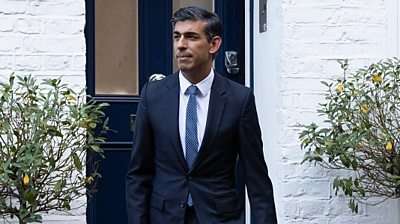China has issued a sharp rebuke to the United Kingdom following the signing of a new trade pact with the United States, accusing Britain of aligning too closely with Washington in a way that could ultimately pressure UK firms to sideline Chinese goods.
The UK-US agreement, finalized last week, grants British exporters some tariff relief, particularly for car and steel products, but under conditions that align with U.S. national security protocols. These requirements demand scrutiny of supply chains and ownership structures, a move widely seen as targeting Chinese interests.
In response, Beijing has warned that the agreement breaches a fundamental principle of global diplomacy: that no international accord should “target third countries.” China’s foreign ministry was blunt in its criticism, stating that “cooperation between states should not be conducted against or to the detriment of the interests of third parties.”
Chinese officials argue that the embedded terms could force UK firms to re-evaluate sourcing relationships, effectively pressuring them to exclude Chinese components and materials in order to gain American market access. Beijing sees this as an intentional strategy aimed at isolating China from global supply chains.
In anticipation of such geopolitical maneuvering, China is doubling down on its “dual circulation” strategy — a policy pivot that emphasizes domestic resilience while fostering selective global engagement. Under this model, state-supported companies are being instructed to source critical components locally, while government ministries pour resources into advanced manufacturing and green innovation.
China Warns Of Economic Isolation
The core of the UK-US trade deal reduces U.S. tariffs on British vehicle exports from 27.5% to 10%, but only for an annual quota of 100,000 vehicles. Additionally, tariffs on UK steel and aluminium are being lifted, again, contingent upon British firms meeting American security conditions. These include detailed transparency of ownership and sourcing, implicitly discouraging Chinese participation.
The agreement also grants American exporters expanded quotas for beef and ethanol sales to the UK and promises further cooperation in key sectors like pharmaceuticals and advanced manufacturing. But once again, all benefits hinge on UK adherence to U.S. security criteria, sparking concern in Beijing that the deal is a subtle push to decouple allies from China’s economic ecosystem.
The timing of the pact comes at a delicate moment. Prime Minister Keir Starmer’s administration has been attempting to recalibrate the UK’s approach to China, seeking a more balanced relationship.

A UK government spokesperson reiterated that “trade and investment with China remain important to the UK,” indicating that London is striving to maintain diplomatic equilibrium even as it draws closer to Washington. The official emphasized that the UK continues to adopt a “pragmatic approach” to managing global economic ties.
Just months ago, Chancellor Rachel Reeves traveled to Beijing to revive high-level economic dialogues that had been dormant for over six years. The visit was widely interpreted as a signal of Britain’s intent to rebuild trust and strengthen bilateral cooperation with China.
However, for Chinese analysts, the UK’s recent actions contradict those overtures. Zhang Yansheng, a senior researcher at the China Academy of Macroeconomic Research, openly criticized the UK’s willingness to accept restrictive conditions in the U.S. deal. He said the trade pact was “not fair to China” and labeled the clauses as “poison pills” — stipulations he argued were “worse than tariffs.”
The broader concern for China lies in whether this agreement sets a precedent for other Western allies to follow, potentially erecting a new wall of economic separation just as Beijing intensifies efforts to secure its own industrial independence.
READ ALSO: Ghana Champions Regional Integration Through Abidjan-Lagos Corridor Project




















